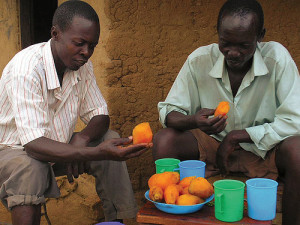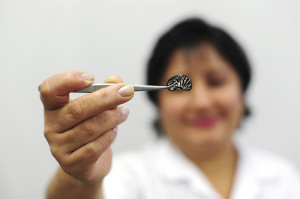Category : News
Published : February 20, 2014 - 2:27 PM
Plant collectors and crop breeders from around the world have teamed up to collect, protect and prepare the wild relatives of our most important food crops in a form that can be used to create new varieties that are resilient to climate change. The project, jointly run by the Global Crop Diversity Trust and Kews Millennium Seed Bank with support from the Government of Norway, is called Adapting Agriculture to Climate Change and focuses on 29 crops; including globally important crops such as wheat, rice and potato as well as crops of major regional importance in the developing world, such as finger millet, sweet potato, cowpea and sorghum.
Scientists working on the project released a paper earlier this week emphasising the relevance of the work for food security and outlining the main phases which will lead to the development of these new varieties. Climate change is acknowledged to be one of the biggest threats to food security in the 21st century. Many decades of modern selective breeding, while greatly improving yield in major crops, has unfortunately left them low in genetic diversity and therefore vulnerable to stresses such as rising temperatures, drought, and diseases. One way to introduce genetic diversity, and therefore resilience, in our crops is to include their wild relatives in breeding programs so that the useful traits they contain (e.g. higher yield, disease resistance, drought tolerance) can be passed onto our crops.
The main phases of the project are as follows
- identify those crop wild relatives (CWR) that are missing from existing gene bank collections, are most likely to contain diversity of value to adapting agriculture to climate change, and are most endangered;
- collect them from the wild and conserve them in gene banks for conservation;
- evaluate these and other CWR materials already in collections for useful traits and prepare them for use in crop improvement; and
- make the resulting products and information widely available.


